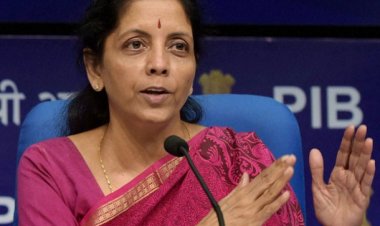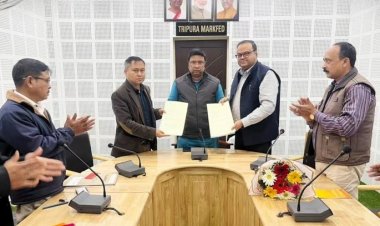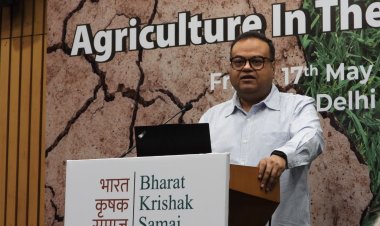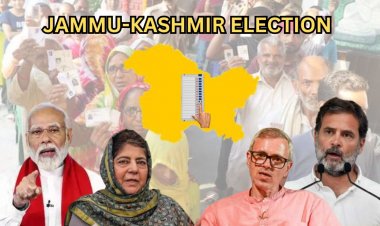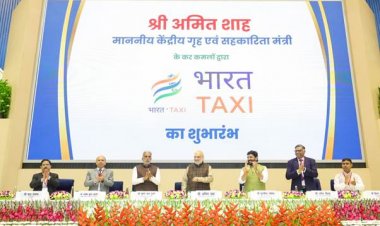States responsible for continued stubble burning, not the farmers: NHRC
NHRC says that the State Governments have to provide harvest machines to get rid of those stubbles but they have failed to provide an adequate number of requisite machines and other measures; as a result, farmers are forced to burn the stubbles, causing pollution. Therefore, none of the States can blame the farmers for stubble burning; instead, it is due to the failure of all four State Governments that the stubble burning is happening.
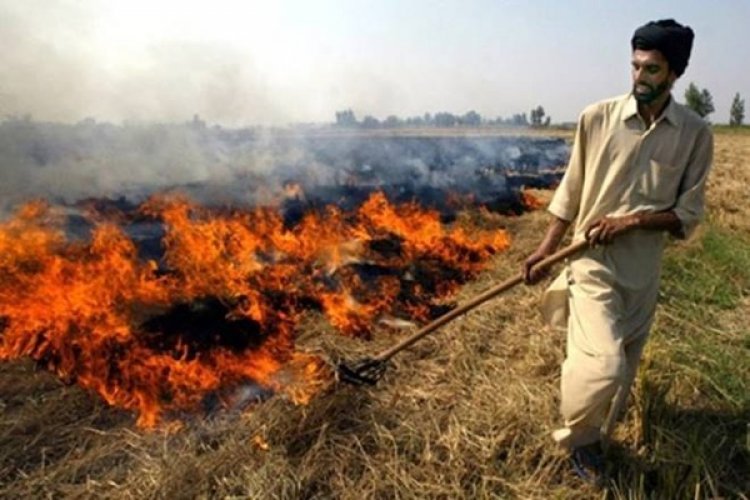
The National Human Rights Commission (NHRC) has taken a tough stand on air pollution in Delhi-NCR. The Commission is of the opinion that it is due to the failure of the State Governments that stubble burning is happening and that “the farmers are burning stubbles under compulsion.” NHRC held a meeting with the Chief Secretaries of Delhi, Haryana, Punjab and Uttar Pradesh on 10 November 2022 to discuss air pollution in Delhi-NCR.
NHRC says that the State Governments have to provide harvest machines to get rid of those stubbles but they have failed to provide an adequate number of requisite machines and other measures; as a result, farmers are forced to burn the stubbles, causing pollution. Therefore, none of the States can blame the farmers for stubble burning; instead, it is due to the failure of all four State Governments that the stubble burning is happening in the States of Delhi, Punjab, Haryana, and UP, causing enormous pollutants in the air.
The Commission has asked the concerned Chief Secretaries to remain present again either in person or hybrid mode on 18 November 2022 for the next hearing on the matter. Prior to this, they have been asked to submit their response/affidavits within four days positively on the points raised by it.
Points for Govt of NCT of Delhi
NHRC has raised the following points for the Government of NCT of Delhi to respond to: (i) steps taken to control open burning. Out of 5000 acres of farmland in Delhi, bio-decomposer was sprinkled free of cost by Delhi Government in 2368.5 acres of paddy only till November. Reasons for not sprinkling in the remaining area and within what time the same will be achieved and result of such sprinkling; (ii) details on Mechanical Road Sweeper (MRS) machines with time, places and dates; (iii) details of mobile and static anti-smog guns deployed in various roads, with the date and places, and on high-rise buildings; (iv) 13 identified hotspots in Delhi and measures taken to keep AQI within reasonable limits as well as the emergency plan to tackle it; (v) area-wise details of surviving trees which were planted; the number of illegal industries running and closed; (vi) how medical waste is collected and the details of the action taken against the hospitals dumping medical waste in an open area; and (vii) with regard to Green Delhi Application and Green War Room for public grievance redressal, a report as to how many grievances have been uploaded on Green Delhi App and how many have been attended.
Points for Govt of Haryana
The Government of Haryana has been asked to respond to the following: (i) for bio-degrading, the area covered, details district-wise and the result thereof; (ii) the number of hotspots identified in the villages and the steps taken to remove them; (iii) the outcome of Haryana State Pollution Control Board control room at Ballabhgarh for the redressal of air-pollution-related complaints; (iv) steps taken for stoppage of construction activities and details of challan, if any; (v) the number of inspections being carried out to check emission norms compliance by the industries and action taken against violators.
Points for Govt of Punjab
NHRC has raised the following points for the Government of Punjab to respond to: (i) Compared to the year 2021, Crop Residue Management (CRM) machines available for utilization in the current year is 1,05,310. There is an increase of only 14,888 machines whereas, as per the report, the purchase of 30,000 machines during the current year, i.e. 2022, has been sanctioned. The reasons for the shortfall in the purchase of the remaining CRM machines against the sanctioned machines and details of month-wise sanction; (ii) Out of these CRM machines, the number of those reserved for Panchayats and cooperatives and of those dedicated for use by poor farmers; (iii) the number of machines available for booking on I-khet app; (iv) Details of date, place and frequencies for various awareness/campaigns/seminars/demonstration events/webinars conducted in the current year; (v) details of bio-decomposers used — district-, Panchayat- and area-wise details, dates, and its impact; and (vi) date-wise fire incident from last year to as on date.
Points for Govt of UP
Some of the points that the Government of UP has been asked to respond are as follows: (i) the impact of subsidy of FPOs, Cooperative Societies and Panchayats on the establishment of Farm Machinery banks; (ii) Details of how many machines are given to Panchayat and cooperatives and how many reserved for poor farmers as also how Panchayat is helping the poor farmers in using the equipment; (iii) the time frame fixed for setting up of 21 more Bio-CNG/Bio-Coal/Bio-Briquettes/CBG/2G ethanol plants; and (iv) the outcome of directions for transportation of construction materials in covered vehicles.



 Join the RuralVoice whatsapp group
Join the RuralVoice whatsapp group




















